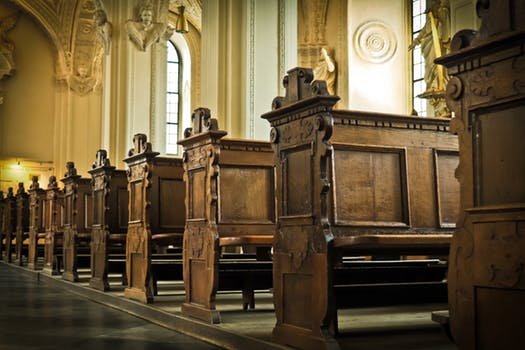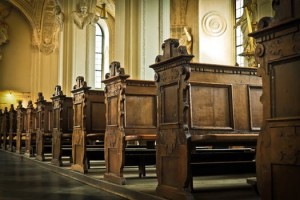 In Philippians 2 we find a somewhat well-known passage that is often referred to as the kenosis passage, referring to the Greek word for “emptied” that is used in verse 7. It is an important Christological passage that reveals a lot to us about who Christ is, although it also opens up a lot of theological questions about what it all means.
In Philippians 2 we find a somewhat well-known passage that is often referred to as the kenosis passage, referring to the Greek word for “emptied” that is used in verse 7. It is an important Christological passage that reveals a lot to us about who Christ is, although it also opens up a lot of theological questions about what it all means.
One thing we find out from this passage is that Jesus’ existence did not begin with his birth in Bethlehem. He was with God before coming to earth as a baby. And not only was he with God, but this passage points out that he was equal with God and shared the same nature. In other words we find out that Christ and God are one. We also find out that rather than holding on to that equality with God, he chose to humble himself, leaving heaven to come to earth as a servant for us.
This is a deep theological issue that is very difficult to understand. Biblical scholars have spent a lot of time and a lot of words diving down deep into the Christological ramifications of these verses.
However, because it is so theologically significant, when we look at this passage, we tend to focus so much on the theological underpinnings that we sometimes miss an important point that Paul is making. He is not just teaching us doctrine. He is actually making a practical point.
First of all it is important to understand that what Christ did in leaving heaven and coming to earth for us is a big deal and that he did it in humility and servanthood out of love for us.
With that in mind, notice the beginning of verse 5: 5 Have this mind among yourselves, which is yours in Christ Jesus
Paul is saying that this example that we see in Jesus, leaving his lofty position and humbling himself to the position of a servant for us is the same kind of attitude we should have.
Actually, if we look at the verses leading up to the kenosis passage we find that Paul is talking about our relationships with one another. He is talking about how we are supposed to take our eyes off of ourselves and start living for the good of one another. Instead of my job to be to take care of myself, it is my job to look after your interests. My role is to be your servant, just like Jesus showed me.
He is not saying that we are to have a low self-image or to think poorly of ourselves. He is talking about putting others needs ahead of our own and being others-focused rather than self-centered.
When we consider the surrounding verses, we recognize that the kenosis passage is still theologically significant; but, it is also extremely practical. Paul is teaching us about how we are to live with the kind of humility and servanthood that Christ exemplified to us.
Instead of each of us looking out for ourselves, what if we all looked out for one another and served one another in true humility? That sounds like the kind of community that I would like to be a part of. How about you?











